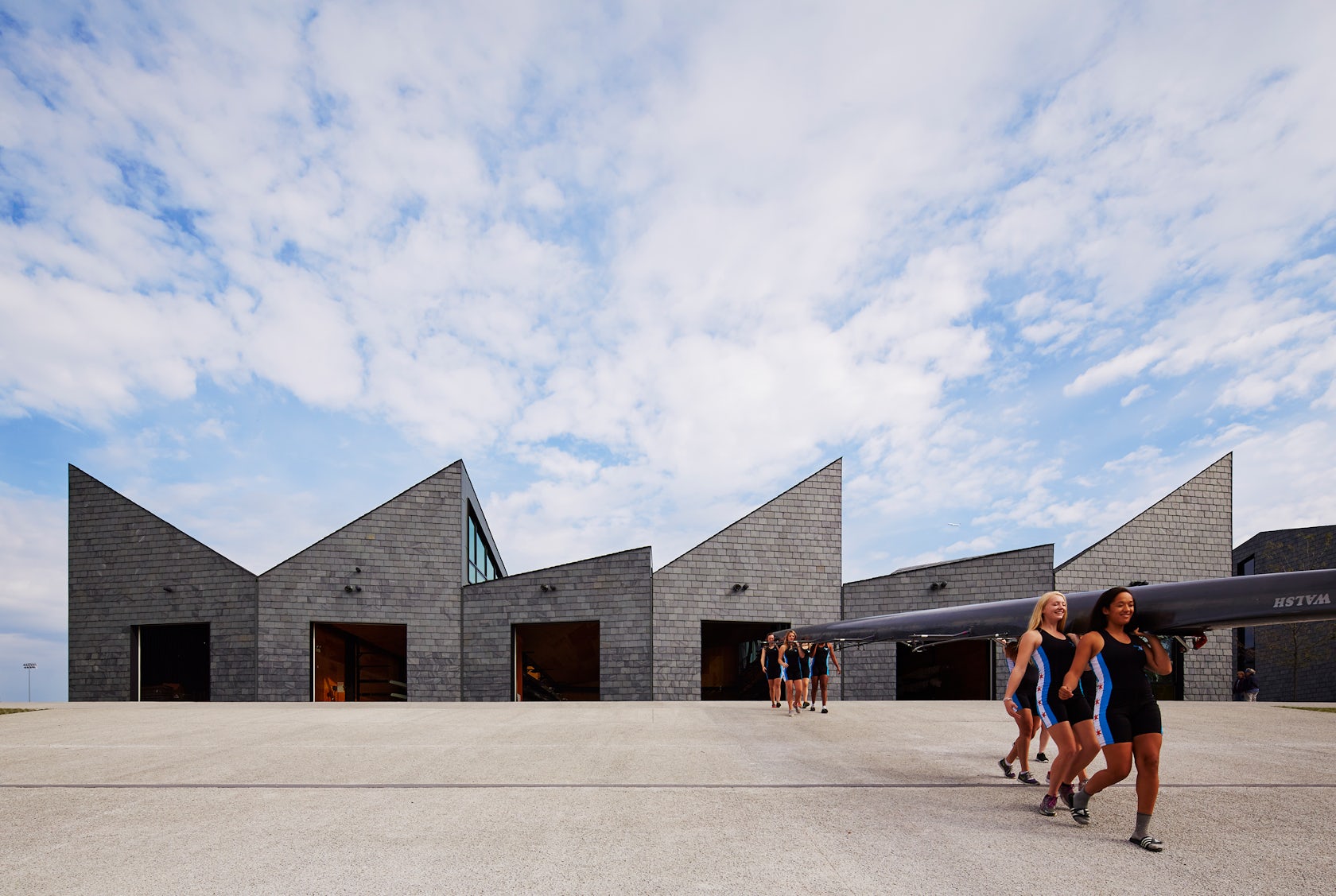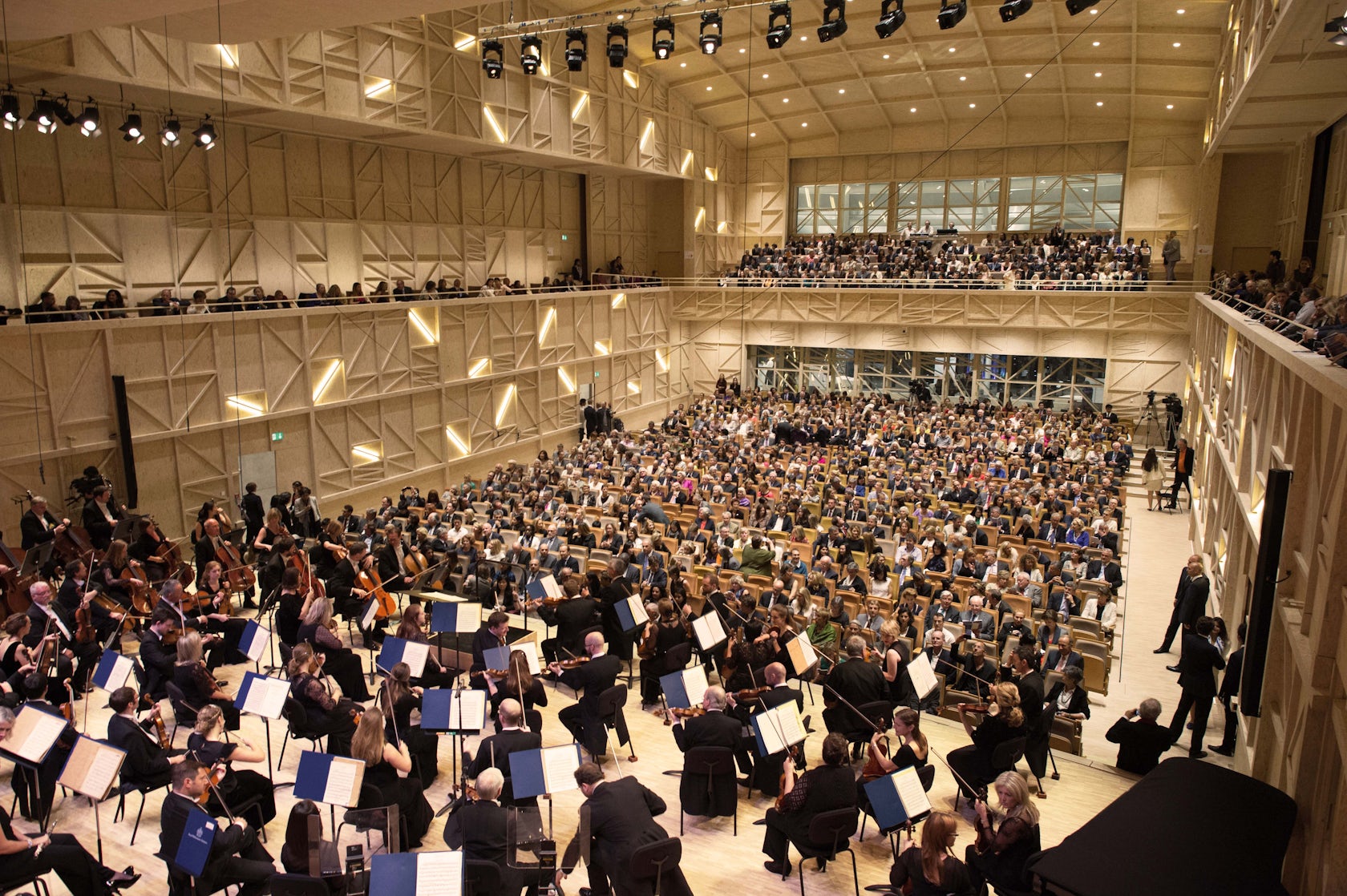Architects: Want to have your work featured on Architizer? Upload your projects to be considered for an editorial feature! Don’t forget to sign up for our inspirational newsletter.
Bold architecture begets recognition. At its heart, architectural practice is about ideas, the creative capacity to reimagine the world as we find it. Designers work to create spaces that challenge conventional norms, advocating ideas that inherently raise awareness and promote change. In this way, great architecture begins to become iconic, recognized within design communities and among the larger public. This holds especially true with cultural projects, those designs which promote recreation, knowledge, and exchange. Embracing public engagement and interaction, these buildings rise as powerful symbols of place.
Architizer’s A+ Awards were created to celebrate novel ideas and bold architecture, elements readily embodied within cultural projects. The following collection takes a closer look at buildings that have been recognized by the A+ awards and have become public icons within their communities. Museums, libraries, sports centers, and more, the designs are significant to locals and architects alike. As cultural landmarks, they showcase how exciting solutions are realized through different scales and programs. While the projects are located across a range of continents and climates, they each establish award-winning forms and spaces while addressing social and environmental contexts. Each project gained recognition by allowing people to look at cities and spaces in a new light. Standing as icons of design, the projects represent visionary concepts and ideas grounded in the rhythms and practices of place.

© Studio Gang

© Studio Gang
WMS Boathouse at Clark Park by Studio Gang Architects, Chicago, Ill., United States
Studio Gang’s recent Boathouse project has quickly become emblematic of Chicago architecture, especially within the design community. The jury’s winning selection for the 2015 A+ Recreation category, the boathouse was designed to transform the Chicago River into its “next recreational frontier.” Creating a series of public access points, the project also explores the motion of rowing through its unique roof form.

© BIG - Bjarke Ingels Group

© BIG - Bjarke Ingels Group
Gammel Hellerup Gymnasium Multi-Purpose Hall by BIG – Bjarke Ingels Group, Hellerup, Denmark
BIG’s gymnasium project in Hellerup gained attention for its formal moves and carefully crafted multi-purpose spaces. The design’s iconic curved roof was created using the formula of a ballistic arch. The project won the 2014 A+ jury award in the Sports and Recreation category.

© designbuildLAB

© designbuildLAB
Smith Creek Park by design/buildLAB, Clifton Forge, Va., United States
Winning the popular vote in the 2014 A+ Awards for Architecture + Urban Transformation, Smith Creek Park was designed to bring new life within a brownfield site and dwindling community. Located in the Virginia rail town of Clifton Forge, the public park and performance space were created as sculptural forms emerging from the landscape.

© ALA Architects

© ALA Architects
Kilden by ALA Architects, Kristiansand, Norway
This concert hall and theater space was designed for multiple performing arts institutions across the city of Kilden. Taking the 2014 A+ jury award in the Theaters and Performing Arts category, the building organizes space to be serviced efficiently. The monumental oak form passes between the natural landscape into the realm of the performing arts.

© Trahan Architects

© Trahan Architects
Louisiana State Museum and Sports Hall of Fame by Trahan Architects, Natchitoches, La., United States
Trahan’s design for this museum and sports hall in Natchitoches “mediates the dialogue between sports and history, past and future, container and contained.” The projects imagines athletics as a component of cultural history, forming spaces that flow together and animate interior stories. The design won the 2014 A+ popular award in the Architecture + Collaboration category.

© Jeff Goldberg/Esto

© Jeff Goldberg/Esto
James B. Hunt Library by Snøhetta and Clark Nexsen, Raleigh, N.C., United States
Snøhetta created the James B. Hunt Library as the social heart of North Carolina State University’s Centennial Campus plan. With spaces designed to democratize access to technology, the project was selected by popular vote for the 2015 A+ award in the Libraries category.

© Reiulf Ramstad Arkitekter

© Reiulf Ramstad Arkitekter
Community Church Knarvik by Reiulf Ramstad Architects, Knarvik, Norway
Overlooking Knarvik’s cultural landscape and local town center, this new community church was built along a heath hillside landscape. As a community landmark, the building was designed to be both inclusive and inviting. The church won the popular vote for the 2015 A+ award in the Religious Buildings and Memorials category.

© Iwan Baan

© Raphael FAUX
Carnal Hall at Le Rosey by Bernard Tschumi Architects, Rolle, Switzerland
The jury’s winning selection for the 2015 A+ Hall / Theater category, Tschumi’s design for Carnal Hall was designed as a highly sustainable philharmonic building. Located by Lake Geneva, the hall was created to promote a contemporary architectural image on the Le Rosey campus.

© SPF:architects

© SPF:architects
The Wallis Annenberg Center for the Performing Arts by Studio Pali Fekete architects [SPF:a], Beverly Hills, Calif., United States
Winner of the popular vote in the 2015 A+ Awards Hall / Theater category, this performing arts center was designed to help revitalize a dormant Beverly Hills post office. Built on a historic site, the project includes a 500-seat theater building and an outdoor sculpture garden. Transforming the physical building and its process of mail distribution, the new center aims to process and distribute culture.

© John Horner

© John Horner
Melbourne School of Design, University of Melbourne by John Wardle Architects and NADAAA, Inc., Melbourne, Australia
As a firm, NADAA has gained international recognition as a leader in design. One of their most recent projects, the Melbourne School of Design, emerged from conversations with reference groups, faculty user groups, and university committees. The building’s iconic coffered timber roof was designed to assist with natural ventilation and mediate natural daylight. The project won the popular vote in the 2015 A+ Higher Education and Research category.




